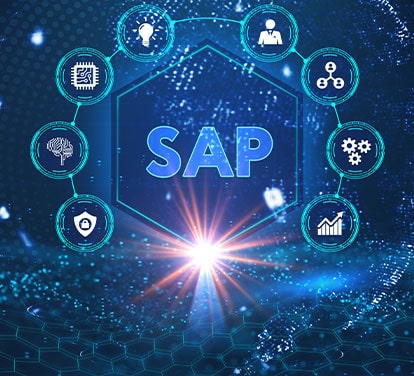Salesforce is one of the most popular CRM tools in the market currently. Over 150,000 customers worldwide leverage Salesforce to drive their Sales, Service, and Marketing. It has been ranked #1 for CRM Applications based on IDC 2019 Revenue Market Share Worldwide. In 2018 Salesforce dominated the worldwide CRM market with a 19.5% market, over double its nearest rival, SAP, at 8.3% share.
Salesforce Analytics for Pharmaceutical Industry
Businesses must consider multiple factors to achieve a strong ROI with Salesforce in terms of profits. The first being that choosing the right CRM and implementing it correctly. This involves hiring an implementation partner with the desired capability and experience to conduct a robust requirements process, develop a training plan, help with adoption coaching, and engineer business processes. The second factor is recognizing what to do with data and dashboards that are now in your system. Even if you have significant data on your prospective customer, it still takes comprehensive Data Analytics to make sense of this data. Without efficient analytics, your CRM Data will only collect dust in a corner. Assuming that you have taken note and correctly followed point one, to achieve a positive ROI, a business must perform comprehensive analytics on its data. They need to take analytics-backed decisions, so sales go up, thus improving the ROI on Salesforce.
Why Salesforce Einstein Analytics?
Businesses need an efficient analytics tool to gain deep insights from the extensive CRM data. Salesforce Einstein Analytics meets this requirement to the “T.” It is an app to visualize the activity occurring in your Salesforce environment. Whether you use Salesforce for Sales, Marketing, or Service, this visibility tool offers insights into the data (like contacts, campaigns, or accounts) your users add to the CRM daily. Salesforce markets the tool as an “AI-powered advanced analytics” solution that includes reports and dashboards, graphs, and other data visualization opportunities to help you understand how users use Salesforce.
Salesforce Einstein Analytics can directly connect to CRM data to generate dashboards and reports. Salesforce notes that you don’t have to limit yourself to Salesforce to use Einstein – you can connect other CRMs and use it for overall business intelligence. The tool’s insights are intended to offer users easy access to potential business opportunities and other areas of growth that help organizations thrive.
Potential use cases of Salesforce Einstein Analytics for the Pharma Industry
Salesforce Einstein Analytics can perform advanced analytics on CRM data powered by Artificial Intelligence (AI). Pharma companies can use insights drawn from these analytics to drive organizational success. Pharma agents, analysts, marketers, and sales reps can empower interactions to be smarter without getting into the complexities.
This is possible due to the broad portfolio of self-service and customized analytics that Salesforce Einstein Analytics can provide within the CRM data. Users can uncover deep insights and explore various data sets from a simple sales pipeline dashboard and perform sophisticated and complex forecasting decisions using Salesforce Einstein Analytics. It can also automatically analyze millions of data combinations to create prescriptive sales recommendations and predictive insights.
Let us take a detailed look at how Sales managers in Pharma businesses can guide their company toward enhanced opportunities, leads, and profits by leveraging Salesforce Einstein Analytics.
Enhanced Performance: Pharma Industry is extremely competitive, and sales highly depend on how efficiently each sales manager can meet their targets. With Salesforce Einstein Analytics, Sales personnel can efficiently monitor the overall pipeline and compare actual performance with the predefined goals throughout the sales period. They can promptly drill down on individual team members for comparing their performance to quotas and then take relevant actions to reinforce or correct performance. Since it also helps identify high-performing Sales Reps, their winning strategies can be identified and replicated across the organization. Sales teams can also leverage unstructured market data from sources outside the CRM to provide competitive intelligence. Helping strategize their drug launch into New Markets, factors influencing Doctors prescribing competitor drugs vs. theirs, etc.
Pipeline Optimization: Salesforce Einstein Analytics helps Sales agents understand changes to their opportunity pipeline in real time. Using it, they can view new deals and compare closed deals that were either won or lost and deals that moved into or out of the sales period. By doing so, they can evaluate opportunity trends to identify earlier missed opportunities. Since sales cycles tend to be long drawn in the pharma industry, with Salesforce Einstein Analytics, pharma reps can keep nurturing lukewarm leads and opportunities for longer without losing track and identifying the next action steps.
Forecasting: New drug launches are often planned well in advance. This includes the sales strategy. By leveraging Salesforce Einstein analytics sales, teams of pharma companies can forecast accurate Sales and revenue. With comprehensive forecasting dashboards, sales managers can better plan for the sales period and take preempted corrective action rather than trying to change the wheels of a running car. This can also give them an accurate idea of when to expect to close particular deals, thus helping set realistic and achievable sales quotas and targets.
Whitespace Analysis: The ability to perform accurate Whitespace analysis is one of the strongest advantages of Salesforce Einstein Analytics. What otherwise takes numerous tools or manual efforts can be done easily. Salesforce Einstein Analytics analyzes and draws insights from vast and complex data sourced within various data sets. It can help pharma companies to identify what to cross-sell to their client base and identify and target which audience is being ignored by competition and can be targeted for sales. Most importantly, it helps identify all the white gaps in an organization’s sales strategy to locate which audience group is being ignored and which high-performing products are not emphasized enough. Salesforce Einstein Analytics can also play a key role in creating market intelligence for Pharma companies by gathering via Social listening tools like Twitter / Face book etc., to gauge what users are saying about their products. They can also understand how competitor products perform and analyze that data for Sales, Feedback, and Quality improvement opportunities.
It is clear from the above that Salesforce Einstein Analytics can have various potential uses in the Pharma Industry. Still, the first challenge that seems to arise is that the above data will likely not be stored in Salesforce. So then, how will pharma companies utilize this data?
The good news is that Salesforce Einstein Analytics connects directly with CRM data to generate dashboards and reports. Salesforce notes that you don’t have to limit yourself to Salesforce to use Einstein. Analytics connectors provide an easy way to connect to data outside of Salesforce.
Connect and Sync Your Data to Salesforce Einstein Analytics
Salesforce Einstein Analytics provides a prebuilt connector that enables businesses to bring in Data from local org. It also provides a range of configurable connectors for remote data in external Salesforce org, apps, data warehouses, and database services. These Connectors help import data into Salesforce to analyze with Einstein.
As explained by Salesforce, the following is a detailed process to explain how we can import data from outside sources into Salesforce Einstein Analytics. This entails that after you use a connector to create the connection to a data source, configure data sync to extract the needed source data into connected objects. To create your final dataset, you can then prepare the data in these connected objects using a recipe or dataflow.
 Connect to Local Salesforce Data
Connect to Local Salesforce Data
Connect to Local Salesforce Data
Use the Salesforce Connector to manage the data synced between your local Salesforce org and Analytics. Filter data synced to Analytics, create more connections using the Salesforce Local connector, manage objects between connections, and add or remove objects and fields from sync. Use the Salesforce External connector to sync data from a remote Salesforce org.
Connect to Remote Data Outside of Your Salesforce Org
Create a remote connection to external sync data with Analytics. Connectors are available if you turn on Analytics after the Winter ’20 release or after enabling Data Sync for your org. For each connector, we provide information on how to create the connection, configure its properties, and track important considerations.
Optimize Your Dataflows with Data Sync
Use data sync to decouple the extract of Salesforce data from your dataflows and sync this data in Analytics on a separate schedule. By scheduling sync ahead of time, your dataflow has less to do and runs faster. Analytics syncs Salesforce data incrementally by default to lighten the load even more, meaning that only changed data gets synced.
Thus, we can conclude that Salesforce Einstein Analytics can majorly optimize ROI in Salesforce for Pharma Industries. This is mainly due to the two key advantages it offers. One is its inherent AI Capabilities that allow managing complex and vast data sets, which is atypical to Sales teams in Pharma companies. The other is its unique ability to import data from external sources, thus making it easier for Pharma businesses to connect various data sets and draw valuable insights that can have a potentially game-changing impact.













